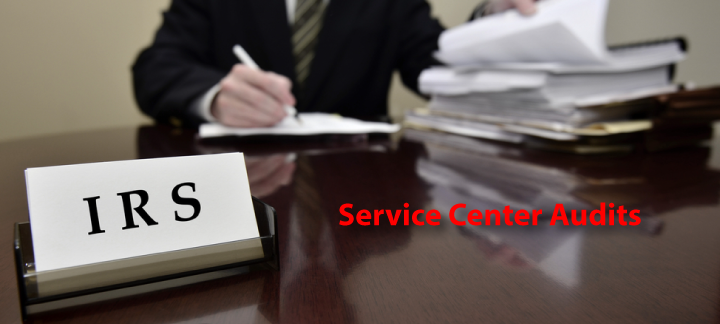Service Center Audits
There are numerous types of IRS audits which are completed at various IRS office locations. One type of office location which handles audits is the IRS Service Centers. IRS Service Centers deal with audits related to the unallowable items programs, multiple filer examinations, and the information returns program.
The Unallowable Items Program
The IRS Internal Revenue Manual describes the Unallowable Items Program as a program which allows IRS personnel to question items on individual tax returns that appear to be unallowable by law (1). The items frequently identified by this program include overstatement of the standard deduction, deduction of Social Security taxes paid, deduction of federal income taxes amounts paid, claiming surviving spouse status for more than two years, claiming a loss on the sale of personal assets, deduction of personal legal expenses, and claiming an incorrect filing status.
Evaluation of tax returns under the Unallowable Items Program takes place at IRS Service Centers. If a return is identified under this program, the IRS will generate a letter for the taxpayer which contains the necessary adjustments to the taxpayer’s amount of tax owed. Technically, the IRS does not consider this process to be an actual audit or examination; rather it is an adjustment in the amount of tax that the taxpayer owes due to minor mistakes found on the tax return. Because this is considered a mathematical or clerical error, the IRS will usually not escalate these cases to requiring a Notice of Deficiency to the taxpayer. However, the situation may morph into a correspondence audit if the taxpayer fails to correct the mistake after receiving written communication from the IRS under the Unallowable Items Program.
Multiple Filer Examinations
Under the Multiple Filer Examinations program, the IRS tries to determine whether multiple tax returns have been filed using the same social security number (2). A multiple filer situation may also occur when one or two individuals filing two different tax returns for same tax period with same social security number, or when family members use the same individual social security number in error. When the IRS discovers a multiple filer situation, the action it takes will depend on whether the use of an incorrect social security number was intentional or in error. The IRS will send letters to the involved parties and wait for the appropriate response; after a certain amount of time, the situation may be elevated to Accounts Management (3).
The Information Returns Program
The IRS uses an Information Returns Processing Program designed to match information contained on tax returns with information contained in informational returns sent to the IRS. Informational returns include data submitted by employers and other third parties during the tax return, such as wages, pensions, interest, and dividends paid during the tax year, and amounts contributed to IRAs. The goal of the Information Returns Processing program is to detect unreported income and excessive deductions through comparison between the tax return and the data provided by third party sources. If the IRS detects unreported income or excessive deductions in a taxpayer’s return, the situation is referred to the IRS collections department for possible resolution. In some cases, the situation may be referred to the Examinations department and can be a reason for the tax return to be selected for an IRS audit.
Seeking The Advice Of An Experienced Tax Attorney
The Tax Lawyer - William D Hartsock has been successfully helping clients navigate IRS audits since the early 1980's. Mr. Hartsock offers free consultations with the full benefit and protections of attorney client privilege to help people clearly understand their situation and options based on the circumstances of their case. To schedule your free consultation simply fill out the contact form found on this page, or call (858)481-4844.
References:
- (1) I.R.M. 4.19.1.6.18.
- (2) I.R.M. 3.13.5.26.
- (3) I.R.M. 3.13.5.26.



Comments (0)